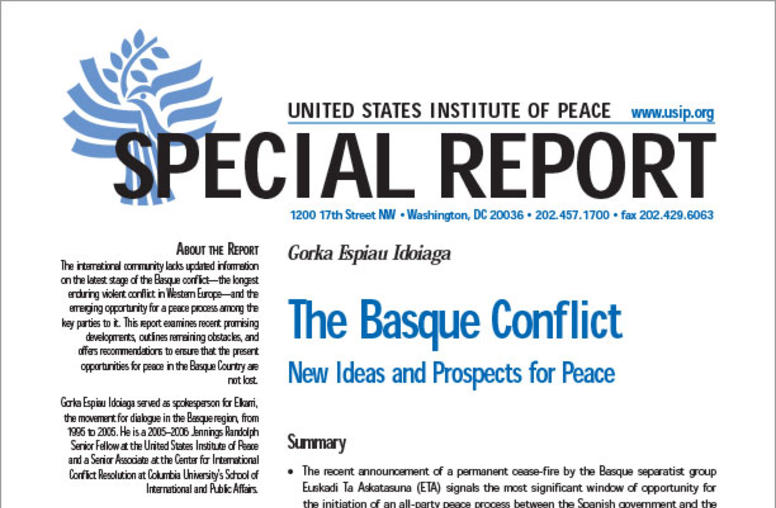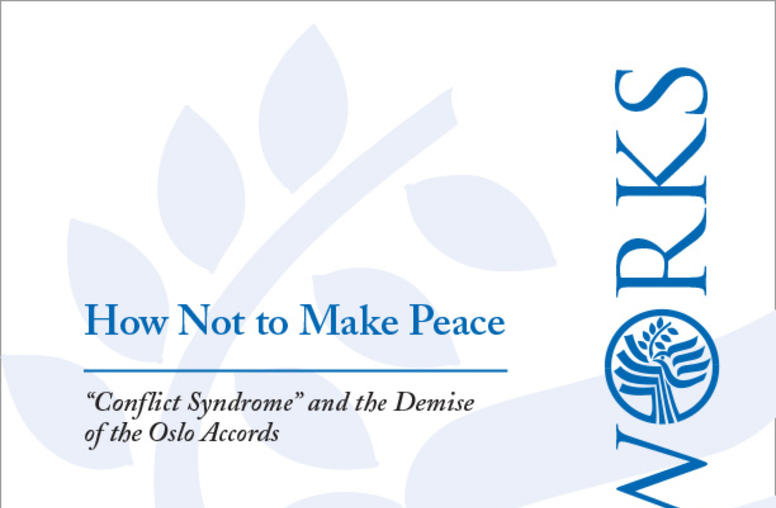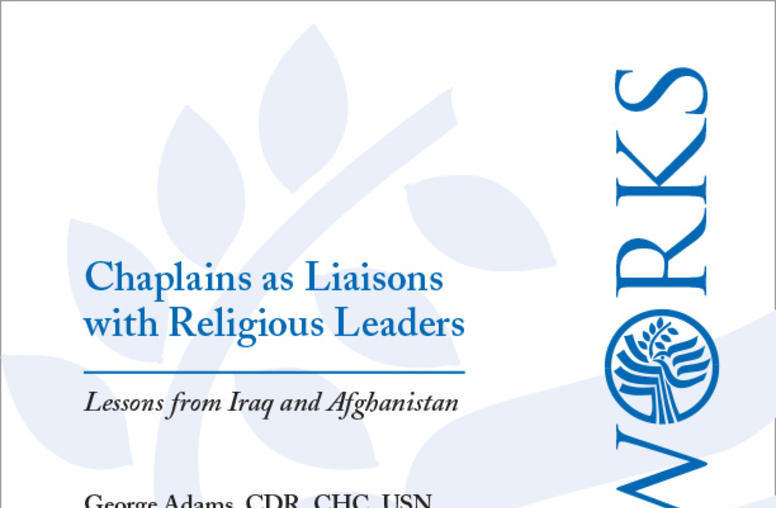Question And Answer
Publications
Articles, publications, books, tools and multimedia features from the U.S. Institute of Peace provide the latest news, analysis, research findings, practitioner guides and reports, all related to the conflict zones and issues that are at the center of the Institute’s work to prevent and reduce violent conflict.
Responding to Crisis in Nigeria
Nigeria currently faces a three-pronged crisis involving Muslim-Christian relations, the Niger Delta region, and presidential term limits. USIP brought together three professors to comment on the different aspects of the crises in Nigeria—this USIPeace Briefing is the convergence of their analyses.
What Makes Zarqawi Tick?
As Iraq teeters on the precipice of a civil war, Abu Mussab al-Zarqawi, al Qaeda’s leader in Iraq, continues to search for ways to push the country over the edge. Yet questions linger about Zarqawi’s ultimate motivation: Is it his loathing of foreign occupation forces that make him tick? Or is his hatred of Iraq’s Shia the essential and irreducible sentiment that sustains his violent jihad?
Sudanese-Chadian Relations: A New Dimension to the Conflict in Darfur?
Following more than a decade of close relations, tensions between the governments of Chad and Sudan have risen in recent months. What impact will this fraying relationship have on both countries?
Anti-Conversion Laws and Religious Freedom in South Asia and the Middle East: The Case of Abdul Rahman
J Alexander Thier testified on Friday, April 7, 2006, before the Congressional Human Rights Caucus on helping Afghans implement a legal system that understands, respects, and promotes the rule of law.

The Basque Conflict: New Ideas and Prospects for Peace
The international community lacks updated information on the latest stage of the Basque conflict—the longest enduring violent conflict in Western Europe—and the emerging opportunity for a peace process among the key parties to it. This report examines recent promising developments, outlines remaining obstacles, and offers recommendations to ensure that the present opportunities for peace in the Basque Country are not lost.

The Peace Process and Palestinian Refugee Claims
The property abandoned by Palestinian refugees in 1948 is an acutely sensitive subject for Palestinians and Israelis alike, and wary negotiators have often steered clear of so impassioned an issue. But the failure to deal with claims for compensation or restitution has ultimately served only to undermine numerous peace endeavors.
Lebanon's Confessionalism: Problems and Prospects
Over the past year and a half, Lebanon has witnessed tremendous political upheaval. Can Lebanon escape its sectarian politics and offer itself as an example for the region?
A Hamas Government: Isolate or Engage?
What does Hamas' victory in the January Palestinian elections mean for Israeli-Palestinian peacemaking? USIP Guest Scholar Shlomo Brom reviews the advantages and the risks of the two strategies that have crystallized since the election.

How Not to Make Peace: "Conflict Syndrome" and the Demise of the Oslo Accords
The failure of the Oslo Accords has been attributed to a variety of factors, including deficiencies in the accords themselves, failures of implementation, and the play of domestic politics. These are all critical factors that describe what happened, but they do not explain why each side behaved as it did--that is, why each side made choices that would only increase the likelihood of the accords' failure.

Chaplains as Liaisons with Religious Leaders: Lessons from Iraq and Afghanistan
As this study demonstrates, military chaplains, as clergy and officers, occupy a unique space that blends a secular status and a religious one, making them well suited to serve as intermediaries between military and religious leaders in areas of conflict and postconflict stabilization.